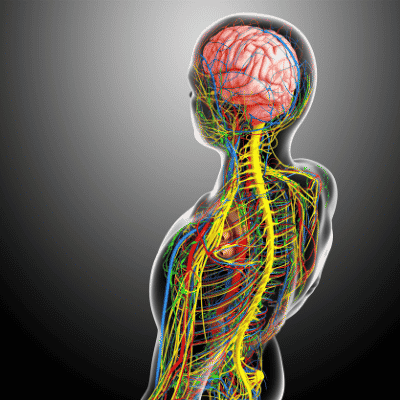What is Neuropathy?
Neuropathy is nerve damage. It is often referred to as peripheral neuropathy as it describes any health condition that results from damage to the peripheral nerves. Once damage to the peripheral nerves occurs, it is irreversible. Peripheral neuropathy is common in diabetes and is often a side effect of chemotherapy. Neuropathy is the burning pain one experiences when they have shingles.
The peripheral nervous system regulates some bodily processes that we have no conscious control over, such as our digestive system, the beating of our hearts, or breathing. It also controls functions that we can control, such as wiggling our toes or moving our arms or legs. When these nerves are damaged, both our sensory and motor functions are affected.
Symptoms of Neuropathy
Symptoms can get worse over time and cannot be cured, but they can be prevented from worsening. Symptoms of neuropathy include:
- Numbness that can either be temporary or permanent
- Burning or prickling sensation that can become significant
- Sensitivity to touch and temperature
- Muscle weakness or eventual muscle wasting
- Severe burning or throbbing pain
- Paralysis
- Dysfunction in the organs or glands receiving the neural signals of damage
- Urinary incontinence or sexual dysfunction
When to See a Doctor
You should see a doctor about neuropathy when you first notice any weakness, pain, or tingling sensations in your hands or feet. The key to halting any further damage to your peripheral nerves is to stop the progression of the nerve damage and treat your symptoms. If neuropathy goes untreated, it can cause damage to even more nerves. For example, many diabetic patients who have peripheral neuropathy can develop ulcers in their feet which can develop complications as severe as gangrene, resulting in tissue death that can lead to the need for eventual amputation of the foot.
What is the Treatment for Neuropathy?
While neuropathy is an incurable and permanent condition, the sooner your doctor diagnoses it, the sooner treatment can begin. Treatment will depend on what is causing the condition but generally includes medication and therapy.
Medication
Medications used to treat neuropathy include:
- Analgesic Pain Medication. This includes over-the-counter pain medications such as non-steroidal anti-inflammatory drugs like Advil or the naproxen found in Aleve. As the pain becomes more severe, prescription painkillers may become necessary.
- Anti-Seizure Medications. These include gabapentin or Lyrica, which, while developed for conditions such as epilepsy, relieve much of the burning sensation common in neuropathy.
- Topical Treatments. While some patients cannot tolerate it, Capsaicin cream is developed from a component of hot peppers and can be effective. Topical lidocaine products such as creams and patches can be effective.
- Antidepressants. Some anti-depressants, such as amitriptyline or nortriptyline, interfere with some of the chemical processes in the brain that cause you to feel pain from nerve damage.
Therapy
Some therapies have proven effective in treating neuropathy by easing the symptoms. These include:
- Transcutaneous electrical nerve stimulation (TENS), where a gentle electrical current is directed into the skin.
- Intravenous immunoglobulin treatments or plasma exchange are used to treat patients with inflammatory conditions, like rheumatoid arthritis or systemic lupus.
- Physical therapy to improve your strength or mobility. Physical therapy includes the use of braces or mobility support such as a cane, walker or wheelchair.
- Surgery. In cases where neuropathy is the result of pressure placed on nerves, surgical procedures to release the pressure can relieve the pain. This is appropriate for conditions like carpal tunnel syndrome.
If you begin to notice symptoms of neuropathy, schedule an appointment at Commonwealth Spine & Pain immediately. Call (804) 288-7246.
